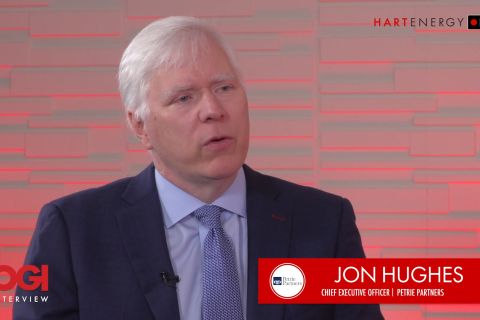Rice University has launched Carbon Hub on Dec. 9, a major research initiative to create a zero-emissions future in which oil and natural gas provide both clean energy and advanced materials that help house, move, clothe and feed people.
Inaugurated by Shell with a $10 million commitment, Carbon Hub will partner with companies to fundamentally change how the world uses hydrocarbons. Instead of burning them as fuel and releasing carbon dioxide, hydrocarbons will be split to make clean-burning hydrogen fuel and solid carbon materials that can be used to make buildings, cars, clothing and more.
Carbon Hub’s solution? Make solid and useable carbon materials directly from hydrocarbons, so no emissions are ever generated.
“The beauty of it is that if you start from hydrocarbons and run efficient processes, you will have leftover hydrogen to make clean, zero-emissions energy,” Carbon Hub Director Matteo Pasquali said. “No single approach to climate change addresses as many issues as the Carbon Hub.”
“The use of clean hydrogen and carbon materials has the potential to be game-changing in the energy transition. Carbon Hub aligns with Shell’s vision to provide more and cleaner energy solutions around the world,” Sharon Beshouri, president of Shell Global Solutions, noted.
Pasquali’s team looked for places to cut out energy inefficiencies without increasing emissions elsewhere. The biggest impact on climate change, he said, will come from creating carbon materials that are lighter than metals but compete with them in terms of strength and electrical and thermal conductivity.
Thanks to nanotechnology, carbon can now take many forms, including nanotubes and graphene. That versatility can support a diverse range of products from beams, panels and wiring for cars and buildings to soil amendments for farming.
With the help of Shell and future industry partners, Carbon Hub will fund and direct $100 million of basic science and engineering to efficiently deploy technologies, including several that have already been proven in the lab. Carbon Hub’s research team includes more than 70 researchers from 20 universities, national laboratories and research institutes. Rice is currently negotiating with other potential industry partners.
The Center for Energy Studies at Rice’s Baker Institute for Public Policy will host the Carbon Hub’s first meeting for partners and potential partners at Rice early next year.
“Providing energy to the world’s population in an economically and environmentally sustainable manner is the global energy challenge,” Ken Medlock, senior director of the Center for Energy Studies, said. “In part, this will require new technologies and forward-looking, creative thinking, which is exactly what Carbon Hub offers.”
Recommended Reading
The OGInterview: Petrie Partners a Big Deal Among Investment Banks
2024-02-01 - In this OGInterview, Hart Energy's Chris Mathews sat down with Petrie Partners—perhaps not the biggest or flashiest investment bank around, but after over two decades, the firm has been around the block more than most.
Petrie Partners: A Small Wonder
2024-02-01 - Petrie Partners may not be the biggest or flashiest investment bank on the block, but after over two decades, its executives have been around the block more than most.
BP’s Kate Thomson Promoted to CFO, Joins Board
2024-02-05 - Before becoming BP’s interim CFO in September 2023, Kate Thomson served as senior vice president of finance for production and operations.
Magnolia Oil & Gas Hikes Quarterly Cash Dividend by 13%
2024-02-05 - Magnolia’s dividend will rise 13% to $0.13 per share, the company said.
TPG Adds Lebovitz as Head of Infrastructure for Climate Investing Platform
2024-02-07 - TPG Rise Climate was launched in 2021 to make investments across asset classes in climate solutions globally.





